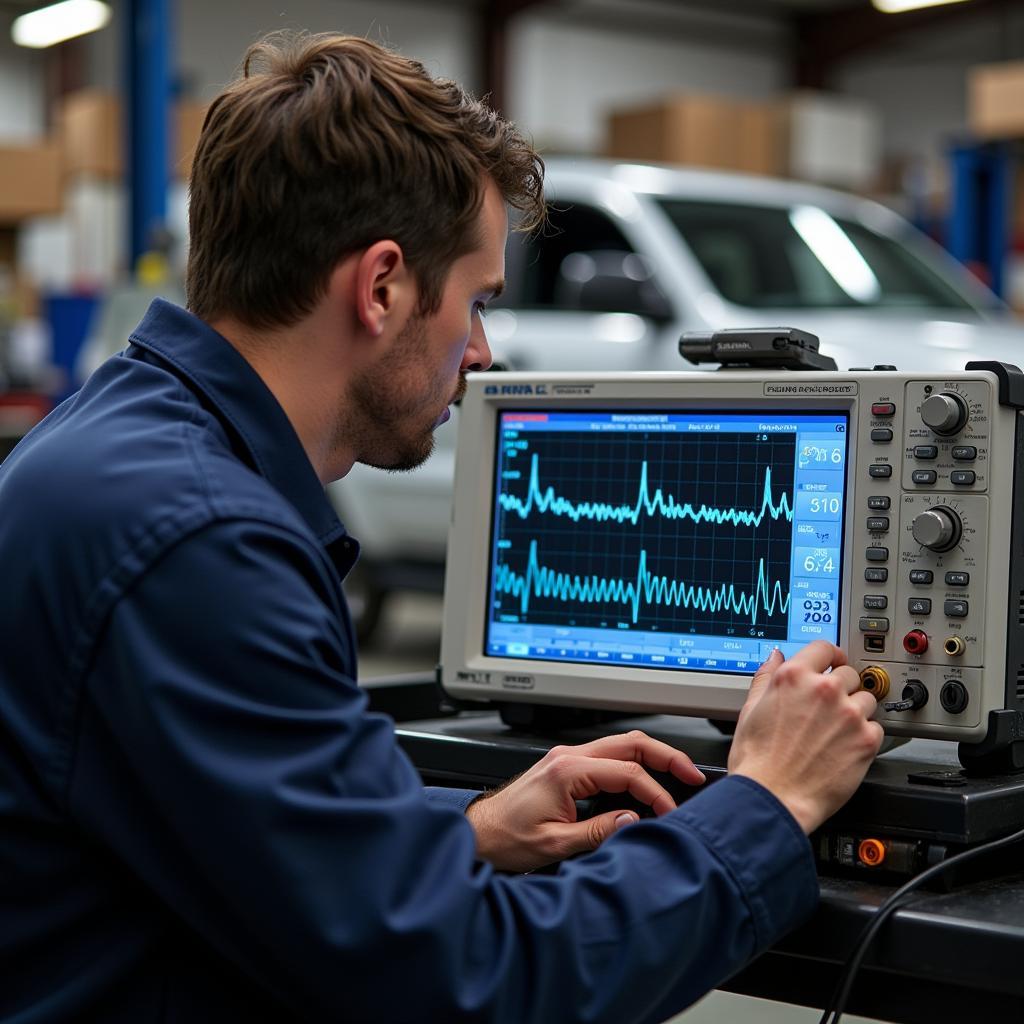Finding the right car diagnostic training course in South Africa is crucial for aspiring automotive technicians and seasoned professionals looking to upskill. The demand for skilled diagnostic technicians is higher than ever as vehicles become increasingly complex, integrating sophisticated electronic systems. This comprehensive guide will delve into the world of car diagnostic training in South Africa, exploring the benefits, types of courses, key factors to consider, and answer some frequently asked questions to help you make an informed decision.
Why Choose a Career in Car Diagnostics?
The automotive landscape is rapidly evolving, with electronic control units (ECUs) and onboard computer systems becoming standard features in modern vehicles. This shift has created a surge in demand for skilled car diagnostic technicians who can troubleshoot and repair these intricate systems.
Choosing a career in car diagnostics offers a rewarding path with:
- High Earning Potential: Skilled diagnostic technicians are in high demand, leading to competitive salaries and potential for growth.
- Job Security: The automotive industry is constantly evolving, guaranteeing job security for qualified technicians who stay updated with the latest technologies.
- Challenging and Engaging Work: Every day presents new challenges and opportunities to solve complex problems, keeping the work stimulating.
- Technological Advancement: As vehicle technology advances, there’s always something new to learn, keeping the profession exciting and dynamic.
Types of Car Diagnostic Training Courses in South Africa
Various institutions across South Africa offer car diagnostic training, catering to different skill levels and career goals. Here are some common types of courses:
- Short Courses: These focused courses typically span a few days to a few weeks and concentrate on specific diagnostic areas, such as engine management systems, transmission control, or ABS braking systems.
- Certificate Programs: Certificate programs offer more comprehensive training, typically lasting a few months, and cover a broader range of diagnostic topics, equipping students with a well-rounded skillset.
- Diploma Programs: For those seeking in-depth knowledge and practical experience, diploma programs typically span one to two years and provide an advanced understanding of car diagnostic theory and hands-on application.
Key Factors to Consider When Choosing a Course
Selecting the right car diagnostic training course is essential for a successful career. Consider the following factors during your research:
- Accreditation and Reputation: Ensure the training provider is accredited by reputable organizations and has a strong industry reputation for delivering quality education.
- Course Content: Thoroughly review the curriculum to ensure it aligns with your career goals and covers the specific diagnostic areas you’re interested in, such as engine management, ABS, airbags, or transmission systems.
- Practical Training: Hands-on experience is crucial in car diagnostics. Choose a program that emphasizes practical application through workshops, simulations, and real-world case studies.
- Instructor Expertise: Learn about the instructors’ qualifications and industry experience. Look for trainers who are seasoned professionals with extensive practical knowledge.
- Industry Connections: Institutions with strong industry connections often provide valuable networking opportunities, internships, or job placement assistance upon graduation.
Navigating the World of Car Diagnostic Tools
An essential aspect of car diagnostics is understanding and utilizing the right tools.
-
Oscilloscope Car Diagnostics: An oscilloscope is a powerful tool for analyzing electrical signals in vehicles, helping technicians pinpoint issues in sensors, actuators, and wiring harnesses.
-
Understanding Car Diagnostic Machine Price in South Africa: Diagnostic machines range in complexity and price. It’s important to research and invest in a machine that aligns with your budget and diagnostic needs.
 Automotive Technician Using an Oscilloscope for Car Diagnostics
Automotive Technician Using an Oscilloscope for Car Diagnostics
FAQs about Car Diagnostic Training Courses in South Africa
What are the entry requirements for car diagnostic training courses in South Africa?
Entry requirements vary depending on the course level. Some short courses might require basic automotive knowledge, while diploma programs may require a matric certificate or equivalent.
How long does it take to become a qualified car diagnostic technician?
The time to become qualified varies greatly depending on the chosen course. Short courses provide specialized skills quickly, while diploma programs offer comprehensive knowledge over a longer duration, typically one to two years.
What career opportunities are available after completing a car diagnostic training course?
Graduates can pursue careers as automotive technicians, diagnostic specialists, service advisors, or even start their own diagnostic workshops.
Expanding Your Diagnostic Skillset: The Value of Oscilloscope Training
For those looking to excel in car diagnostics, understanding how to use an oscilloscope for car diagnostics is invaluable.
“The ability to interpret waveforms using an oscilloscope is a game-changer in car diagnostics,” says Johan Peters, a seasoned automotive electrical systems specialist with over 20 years of experience. “It allows you to dive deeper into a vehicle’s electrical system, diagnose intermittent faults, and pinpoint issues that traditional code readers might miss.”
Conclusion
Investing in car diagnostic training courses in South Africa is a smart move for individuals seeking a rewarding and future-proof career in the automotive industry. With the right training and dedication, you can become a highly sought-after professional in this dynamic and ever-evolving field.
Need expert advice? Our team at DiagFixPro is here to guide you. Contact us via WhatsApp: +1(641)206-8880 or Email: [email protected]. We’re available 24/7 to assist you in finding the perfect car diagnostic solution.